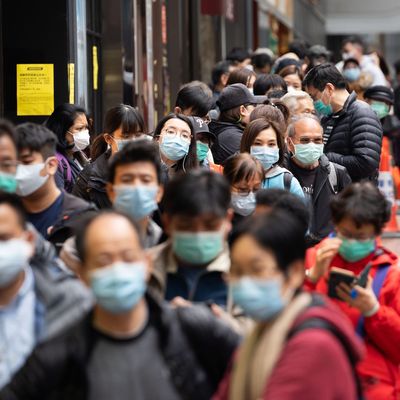
On December 30, 2019, 34-year-old ophthalmologist Li Wenliang posted to a group of medical school alumni on the messaging app WeChat, informing the doctors that seven patients in his hospital in Wuhan, a city of 11 million people, were quarantined with symptoms similar to those from the SARS virus. Chinese officials weren’t pleased: In the middle of the night, the Wuhan health authority requested Dr. Li’s presence, asking why he had publicized the information. Three days later, under police duress, he signed a document stating that he had engaged in “illegal behavior” by informing fellow doctors of an emerging health threat.
At 2:58 a.m. on February 7 in Wuhan, Dr. Li died from coronavirus, after first being hospitalized on January 12, and testing positive for the illness on February 1. With the World Health Organization designation last week that the virus had become a global health emergency, the young opthamologist and whistleblower has become a symbol in China for those frustrated with the government’s handling of the outbreak, which has now killed 630 people in the world’s most populous country. After the government made Dr. Li’s death public, topics like “Wuhan government owes Dr. Li Wenliang an apology,” and “We want freedom of speech” began to trend on Weibo, the a Chinese app similiar to Twitter.
In an analysis of the state’s failure to properly treat the public health threat, the New York Times notes that, in January:
Authorities silenced doctors and others for raising red flags. They played down the dangers to the public, leaving the city’s 11 million residents unaware they should protect themselves. They closed a food market where the virus was believed to have started, but didn’t broadly curb the wildlife trade.
Their reluctance to go public, in part, played to political motivations as local officials prepared for their annual congresses in January. Even as cases climbed, officials declared repeatedly that there had likely been no more infections.
“If the officials had disclosed information about the epidemic earlier,” Dr. Li told the Times. “I think it would have been a lot better. There should be more openness and transparency.” Speaking with the Chinese newspaper the Southern Metropolis Daily, Dr. Li said that after he had recovered he wanted to “return to the front line,” adding, “The epidemic is still spreading, and I don’t want to be a deserter.”
On Thursday, as the number of confirmed cases of the virus globally grew to 28,275 — with 28,000 of those in China — senior officials ordered the city of Wuhan to quarantine all residents who have been infected with the virus.






























